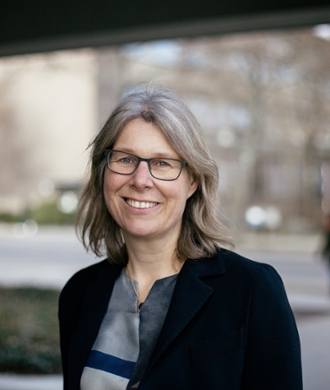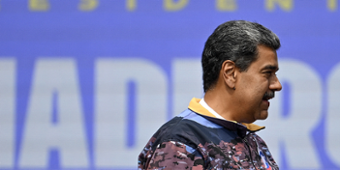
Languages and cultures of the world
The key to mutual understanding
When it comes to languages and cultures, Leiden University is the university. The global expertise present places our university at the top. In Leiden and The Hague, we study languages and cultures from all regions of the world and from prehistory to the present day. In this way we create a broad view of the world; the key to mutual understanding.
Latest news
What our language and culture experts have to say
Are you curious about our experts? If so, take a look at this short video featuring some of these experts:
- Alisa van de Haar, French Language and Culture: 'In the Netherlands we are very focused on the Dutch and Anglo-Saxon world. But the world is bigger than that.’
- Thijs Porck, English Language and Culture: 'The best way to study a culture and its history is in the language people used at that time.’
- Florian Schneider, Chinese Language and Culture: 'What happens in China isn’t so very different from the Netherlands; it just moves at a different pace and within different parameters.’
Want to know more? Watch the mini-docu.
Due to the selected cookie settings, we cannot show this video here.
Watch the video on the original website orWhat we do
To confront global issues like migration, colonialism and heritage, you need to look beyond your own filter bubble. Instead, knowledge of different perspectives is crucial, both globally and over time.
With its language and culture expertise, Leiden University explores these issues from a multitude of cultures and historical periods. By studying languages, regions, history, religions, literature, art and philosophy in context, we create a broader view of the world.
Sources you can read in the original language are essential pillars here. The impact of a medium differs between clay tablets and social media posts and that also determines the way you use it. Cultural sources from classical antiquity to our contemporary world are studied in Leiden.
Leiden is expert in the regions of Africa, Europe, North and South America, the Middle East, East Asia, Southeast Asia, South Asia, Oceania, and Russia and Eurasia.
Leiden scholars never study a language, whether modern or from Classical Antiquity, in isolation from its associated culture, regional history and social environment. Thus, Leiden research is known for the collaboration between linguists, archaeologists, historians, psychologists, pedagogues, biologists, geneticists and medics.
Research projects
Events
Featured
Experts
-

Petra de Bruijn Topics: area studies, islamic studies, languages and cultures of the world, middle east, performance art, turkey -

Petra Sijpesteijn Topics: arabic studies, embedding conquest, islam and society, islamic history, islamic studies, languages and cultures of the world, middle eastern studies, papyrology -

Remco Breuker Topics: central asian history, human rights, korean film, korean history, korean studies, languages and cultures of the world, modernity, north korea, world history -

Lisa Cheng Topics: asia, bantoe, chinese language, comparative syntax, languages and cultures of the world, languages, cultures and worldviews, morpho-syntax interface, syntax, syntax-prosody interface, syntax-semantics interface, theoretical linguistics, zulu language -

Keiko Yoshioka Topics: japanese language, japanese language and linguistics, japanese studies, languages and cultures of the world, second language acquisition -

Jan van Dijkhuizen Topics: english literature, languages and cultures of the world, literature, scenses -

Egbert Fortuin Topics: languages and cultures of the world, pragmatics, russia, russian linguistics, semantics, sociolinguistics, syntax, typology -

Nancy Kula Topics: africa, descriptive linguistics, language policy, languages and cultures of the world, morphology, multilingualism, phonology, theoretical linguistics -

Carmen van den Bergh Topics: digital humanities, film and culture, italian literature, italian modernism, languages and cultures of the world -

Casper Wits Topics: chinese foreign relations, chinese studies, eu foreign policy, european policy, international relations, japanese studies, languages and cultures of the world -

Joanne Stolk Topics: early litteracy, languages and cultures of the world, morfology, papyrology -

Alp Yenen Topics: languages and cultures of the world, middle east, modern turkish history, political history, transnational and international history, turkey, turkish studies -

Rogier Creemers Topics: big data and policymaking, china, cybersecurity, international relations, languages and cultures of the world, the human digital world -

Alisa van de Haar Topics: cultural translation and reception, history of cultures, knowledge and ideas, languages and cultures of the world, north america -

Matthijs Westera Topics: ai and society, computation linguistics, languages and cultures of the world, natural language processing, questions, semantics-pragmatics interface, semantics-prosody interface, the human digital world, theoretical linguistics -

Esther Op de Beek Topics: dutch language and culture, dutch literature and culture, happiness and emotion in literature, languages and cultures of the world, new media and literature -

Peter Bisschop Topics: ancient cultures of south asia, centre for intercultural philosophy, languages and cultures of the world, sanskrit -

Martine Bruil Topics: constructing heritage, cultural heritage, descriptive linguistics, indigenous languages, language diversity, languages and cultures of the world, south-america, south-american linguistics -

Thijs Porck Topics: constructing heritage, early middle ages, english language and literature, languages and cultures of the world, medieval history, old english language -

Lettie Dorst Topics: automatic translation, computer-aided translation, corpus linguistics, languages and cultures of the world, literary translation, metaphor studies, subtitling, the human digital world -
Florian Schneider Topics: china, chinese economy, chinese media, chinese studies, digital humanities, east-asia, languages and cultures of the world, political communication, the human digital world, traditional chinese political thought -

Olaf Kaper Topics: egyptian religion, egyptology, languages and cultures of the world, ptolemaic egypt
Online module: Large language models and artificial intelligence
As this kind of software increasingly influences our professional, scientific and daily lives, it is important to be aware not only of its possibilities, but also of its limitations. This module guides you through some of the key issues involved in using this new technology: what is it? What are the challenges? And what are the ethical concerns? This module will help you use this technology responsibly.













